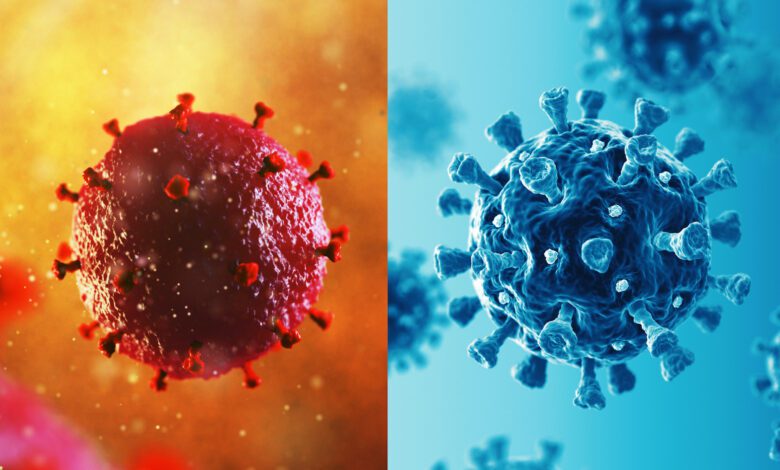
By Paul Sixpence
Just as was the case in 2020, we commemorate this year’s World Aids Day (WAD) in the midst of the COVID-19 pandemic. The emergence of a new COVID-19 variant, Omicron, is likely to shadow this year’s commemorations. The drowning of HIV by COVID-19 is likely to shift political attention and financing away from efforts to consolidate the gains made in the fight against HIV over the years.
As we commemorate this year’s WAD and contend with COVID-19, we should never lose sight of our collective obligation to defeat AIDS by 2030.
“Fighting HIV contributes to fighting COVID19 and pandemic preparedness. So, as countries and communities continue to fight COVID-19, we remind them of the urgency in fighting HIV. And, we point to the wider benefits,” Winnie Byanyima, Executive Director, UNAIDS speaking at the UNAIDS Strategic Funding Dialogue.
Zimbabwe’s recent key milestones in the fight against COVID-19
In April 2021, the National Aids Council (NAC) reported that Zimbabwe had achieved the UNAIDS 90-90-90 targets. Reaching the targets was attributed to increased access to HIV testing and integration of the same with access to biomedical HIV prevention and treatment options, namely, anti-retroviral therapy, voluntary medical male circumcision, pre-exposure prophylaxis (PrEP) and post-exposure prophylaxis.
In July 2021, the Medicines Control Authority of Zimbabwe approved the Dapivirine Vaginal Ring for HIV prevention. Zimbabwe became the first country to approve use of the vaginal ring secondary to a positive scientific opinion by the European Medicines Agency and pre-qualification by the World Health Organisation.
Between 2015 and 2020, the number of HIV deaths fell by 28 percent. According to NAC, in 2020, they were 22 000 AIDS-related deaths. Thus, AIDS mortality stood at 137 per 100 000 last year.
Zimbabwe included key populations and groups at risk of HIV infection in national HIV prevention and treatment policies. The extended Zimbabwe National HIV and AIDS Strategic Plan 111 (ZNASP 3) for the period 2015 – 2020, details the need to develop specific programming targeting at high-risk groups, namely, transgender persons, men who have sex with men (MSM), male and female sex workers amongst other groups.
The mention of transgender and MSM communities in this national strategic document details the realisation by national leaders and policy makers of the need to ‘leave no one behind,’ if we are to end AIDS by 2030.
In implementing ZNASP 3, the Government of Zimbabwe, through NAC and in partnership with the Global Fund to Fight AIDS, Tuberculosis and Malaria has created expanded platforms for interaction among at-risk groups with the media, duty bearers and service providers.
As part of efforts to end HIV and AIDS related stigma and discrimination, Zimbabwe will soon decriminalise the wilful transmission of HIV. Law making processes are at advanced stage to repeal section 79 of the criminal code that criminalises the deliberate transmission of HIV.
Grassroots and community centred approaches to fighting HIV
During COVID-19 induced lockdowns we learned about the power of community and people centred approaches in delivering services and information to groups in need.
Grassroots organisations and movements have proved to be closer to communities and thus are better placed to counter disinformation and support access to health services by key populations and at-risk groups.
Data collection to inform interventions
UNAIDS, in its report published in November 2021, titled, ‘Unequal, Unprepared, Under Threat – Why Bold Action Against Inequality Is Needed to End Aids, Stop COVID-19 and Prepare for Future Pandemics,’ makes a call for people centred data systems that highlight inequalities and identifies data collection as one of the key priorities in its, ‘Global AIDS Strategy.’
To ensure that ‘no one is left behind’ in the national HIV response, the State through its agencies and departments must legally and ethically collect data on key populations and at-risk groups that have traditionally been left behind in national HIV response efforts.
It is commendable that the Ministry of Health and Child Care (MoHCC), through the department of health informatics has developed the electronic health records (EHR) system. HER together with other national digital health systems will be able to tell us, ‘who is being reached with services, who is not being reached and why?’ This will strengthen the national HIV response system by making it proactive rather than reactive.
The Zimbabwe national statistics agency, ZimStats, should also collect data on sexual minorities to inform national policy making processes and programming.
Advocacy areas for 2022 and beyond
Globally, approximately one million people have access to PrEP. The majority of these people are in the United States of America, Australia and Europe. There is need to scale-up access to PrEP for all populations at risk in HIV high burden countries including Zimbabwe.
The successful development of effective mRNA COVID-19 vaccines is due in part to HIV vaccine research. The development of an effective HIV vaccine is the surest way of ending HIV and therefore AIDS. It is prudent to call for political commitments towards financing the development of an HIV vaccine.
Of late, a significant proportion of people living with HIV in Zimbabwe have been succumbing to cryptococcal meningitis. According to Médecins Sans Frontières (MSF), cryptococcal meningitis, an opportunistic infection, kills more people living with HIV than any other cause, except tuberculosis. It is responsible for an estimated 180 000 deaths per year of people under 40 years living in sub-Saharan Africa.
Flucytosine, a safe and effective drug for cryptococcal meningitis which has been around since the 1950s can prevent unnecessary deaths arising from cryptococcal meningitis. It is time to lobby local regulatory authorities to licence the drug for use in Zimbabwe.
Paul Sixpence is a journalist and an HIV prevention and treatment advocate. He can be contacted on: psixpence@gmail.com





